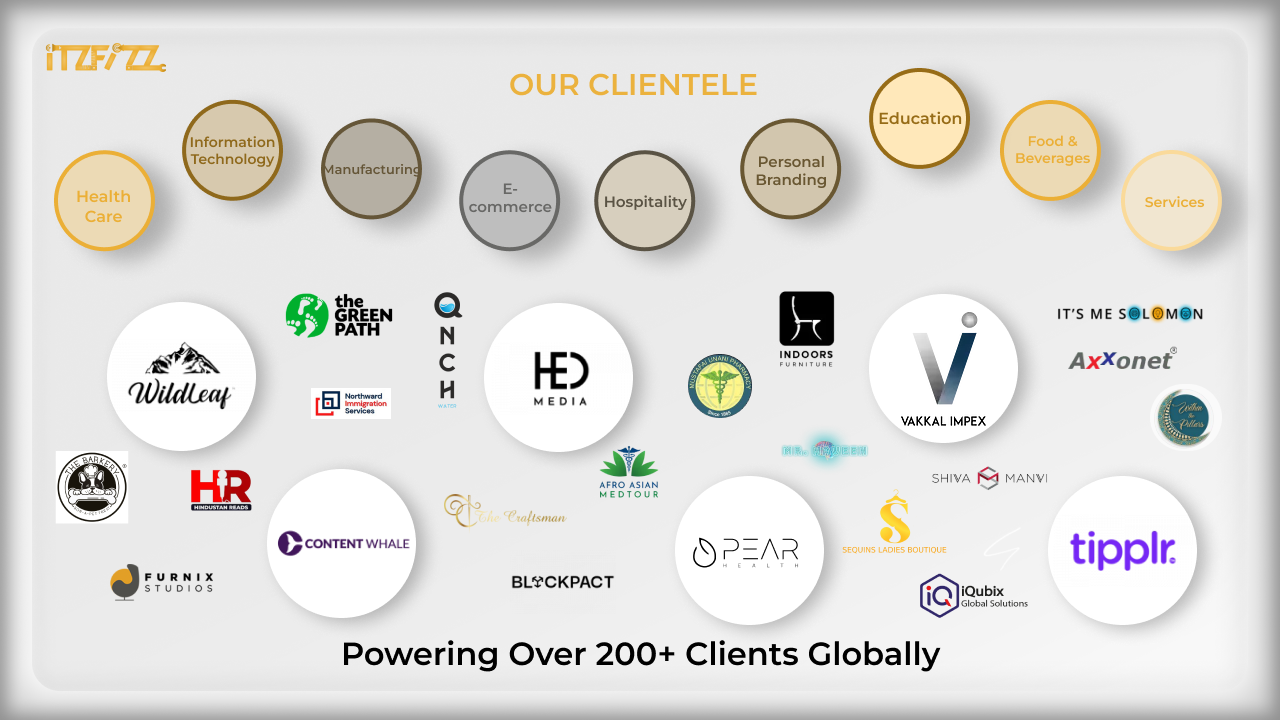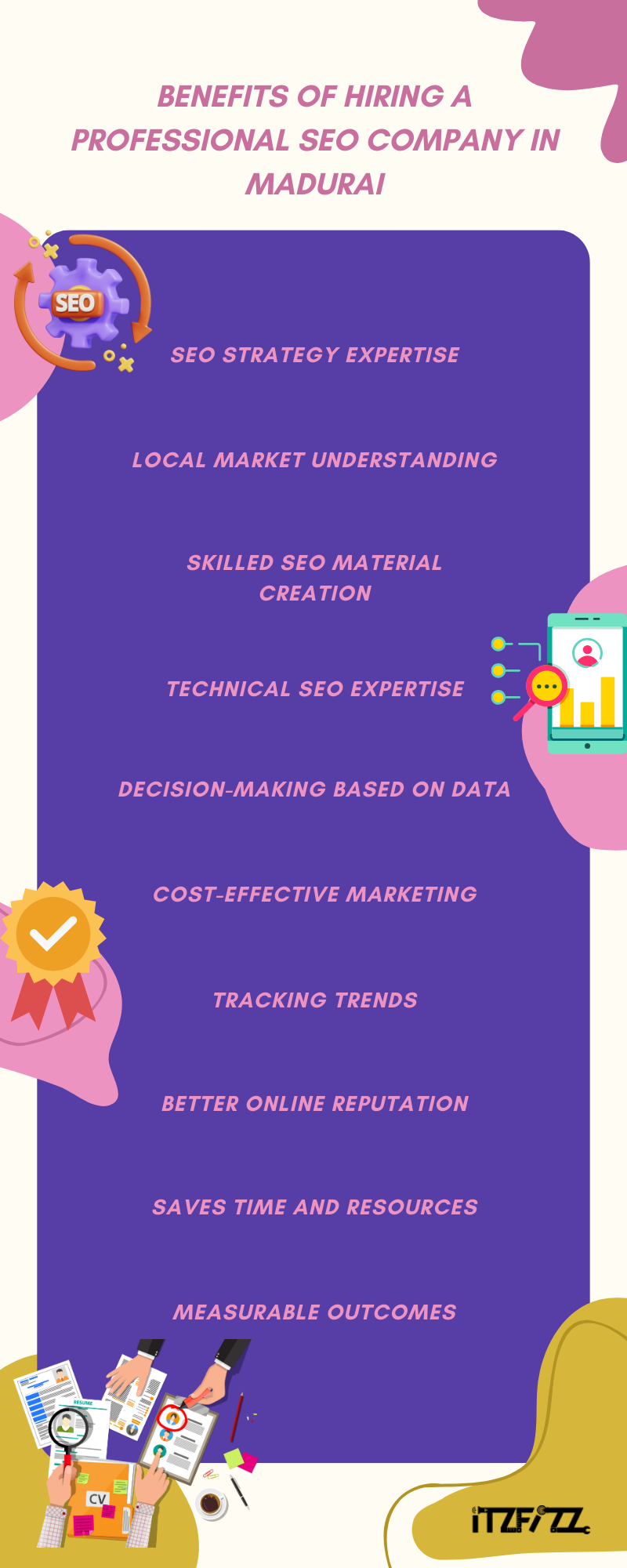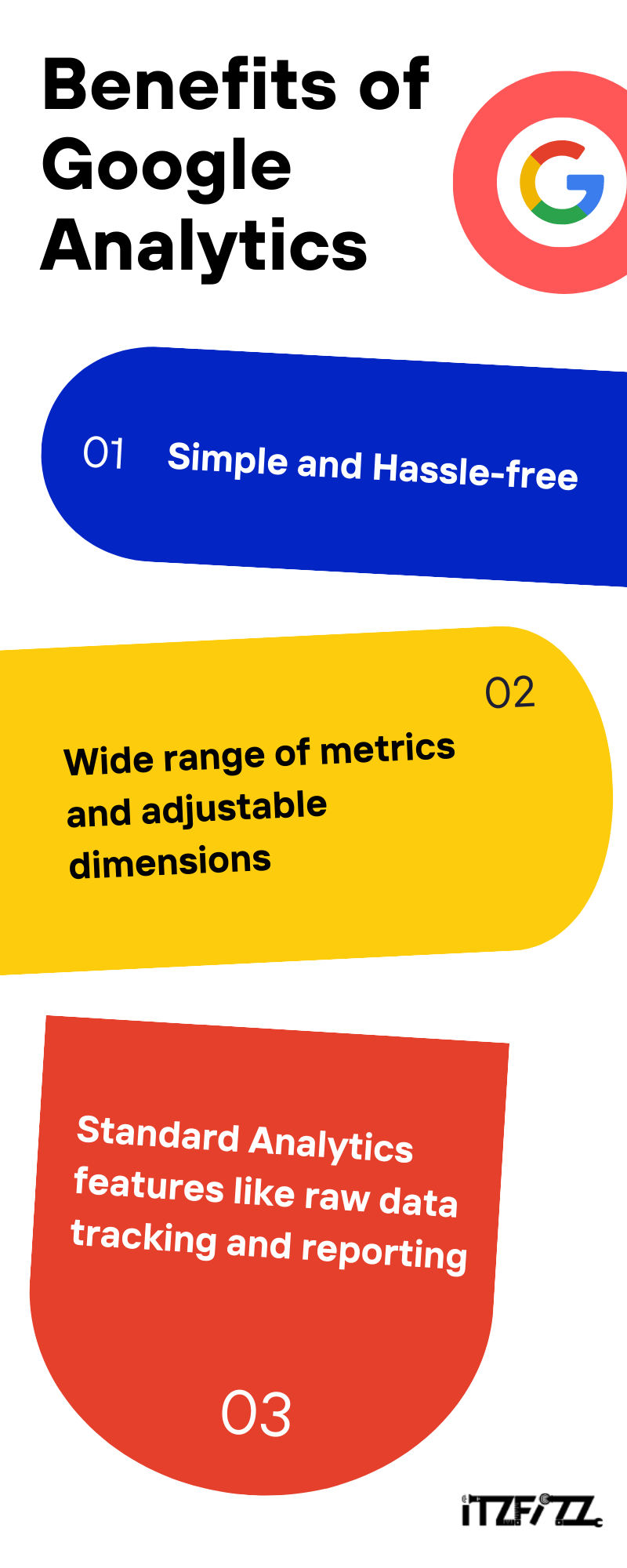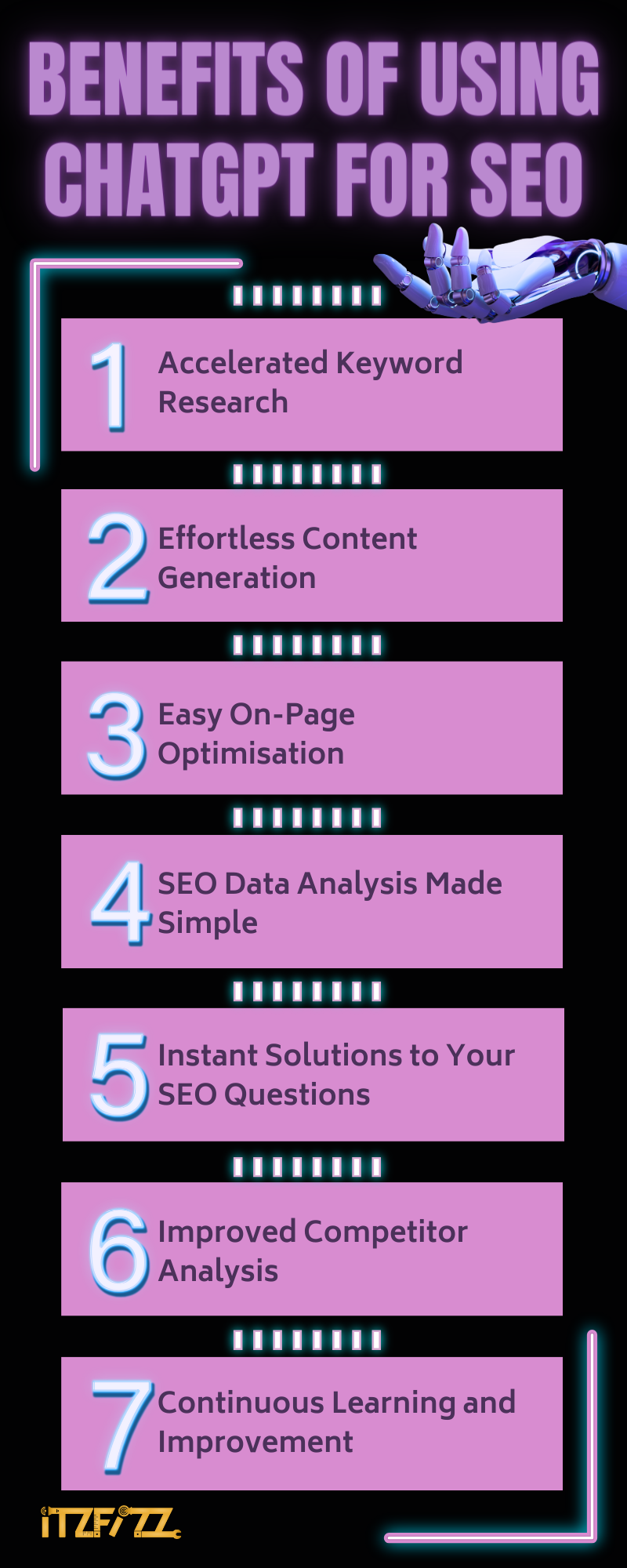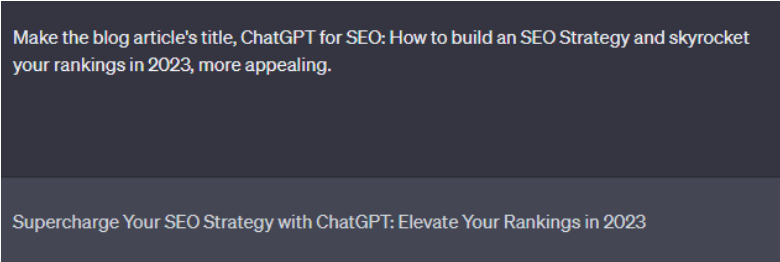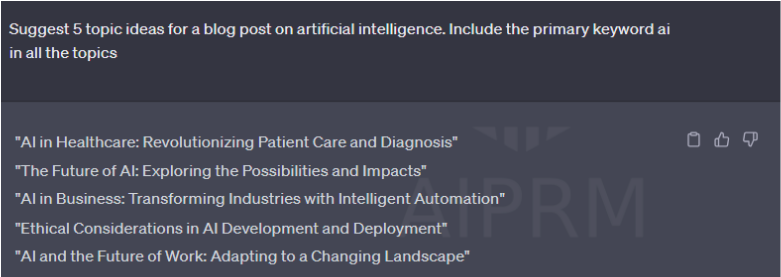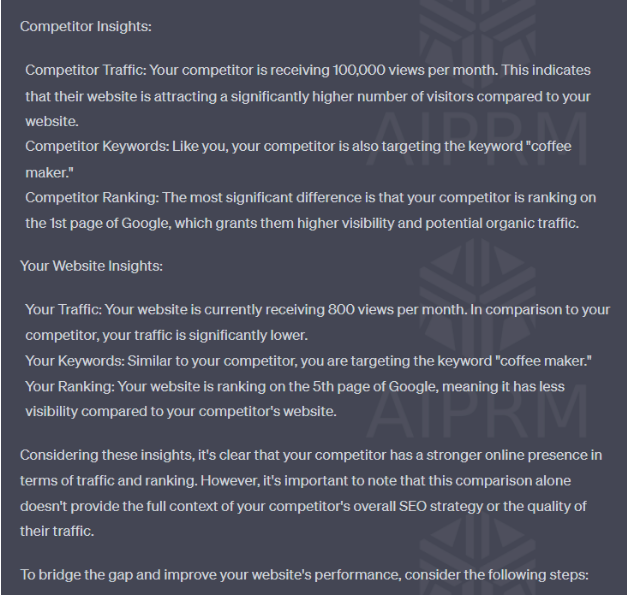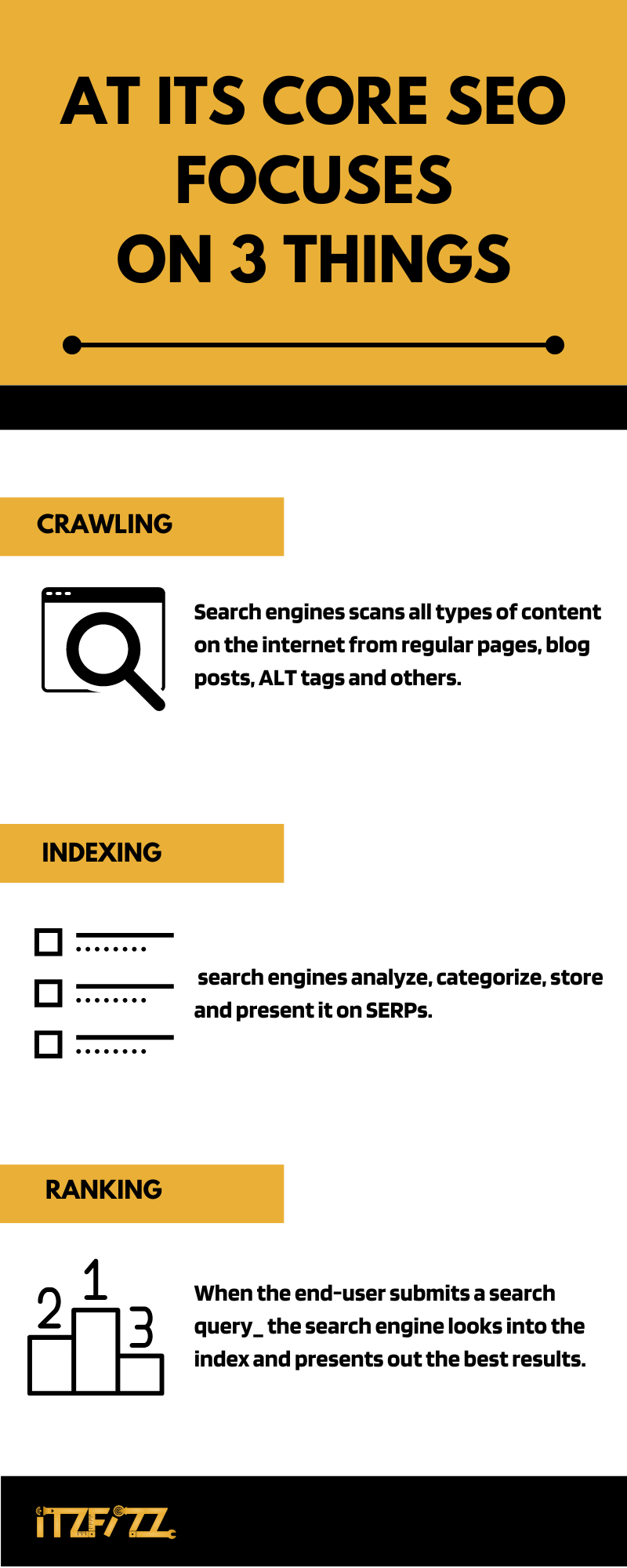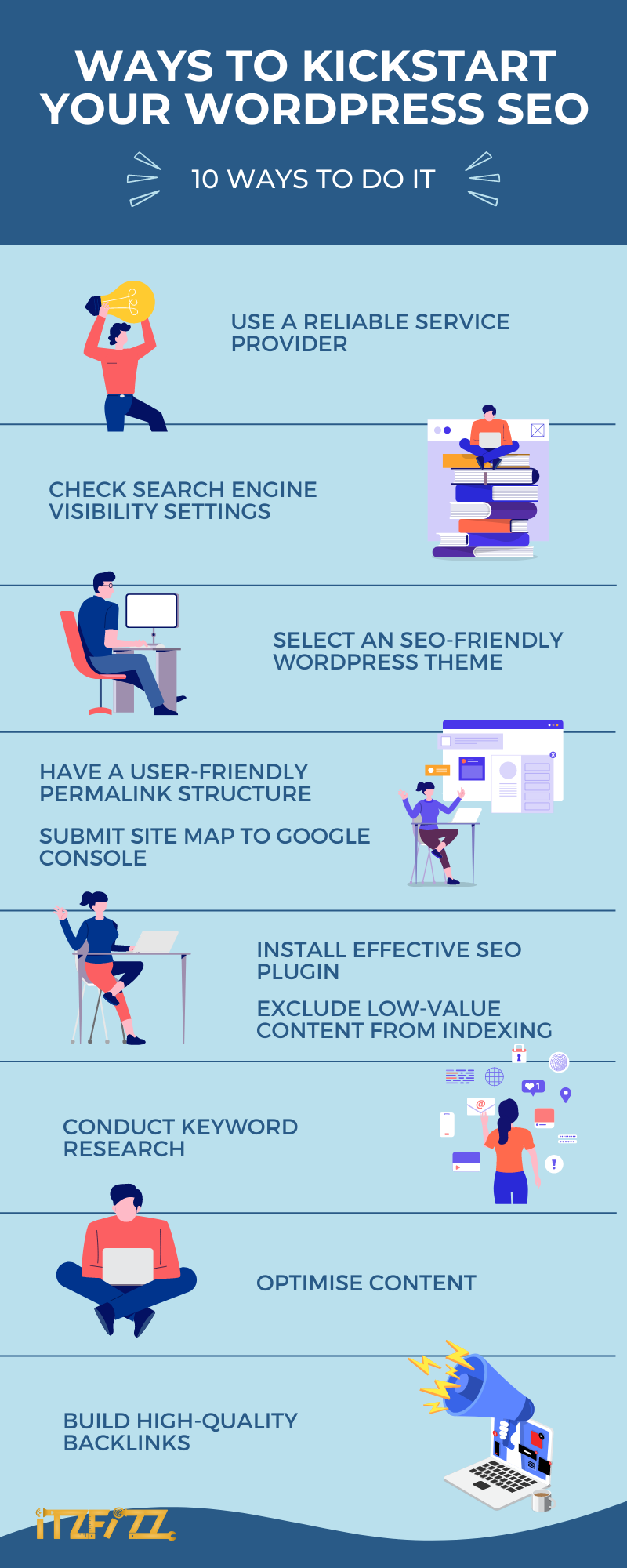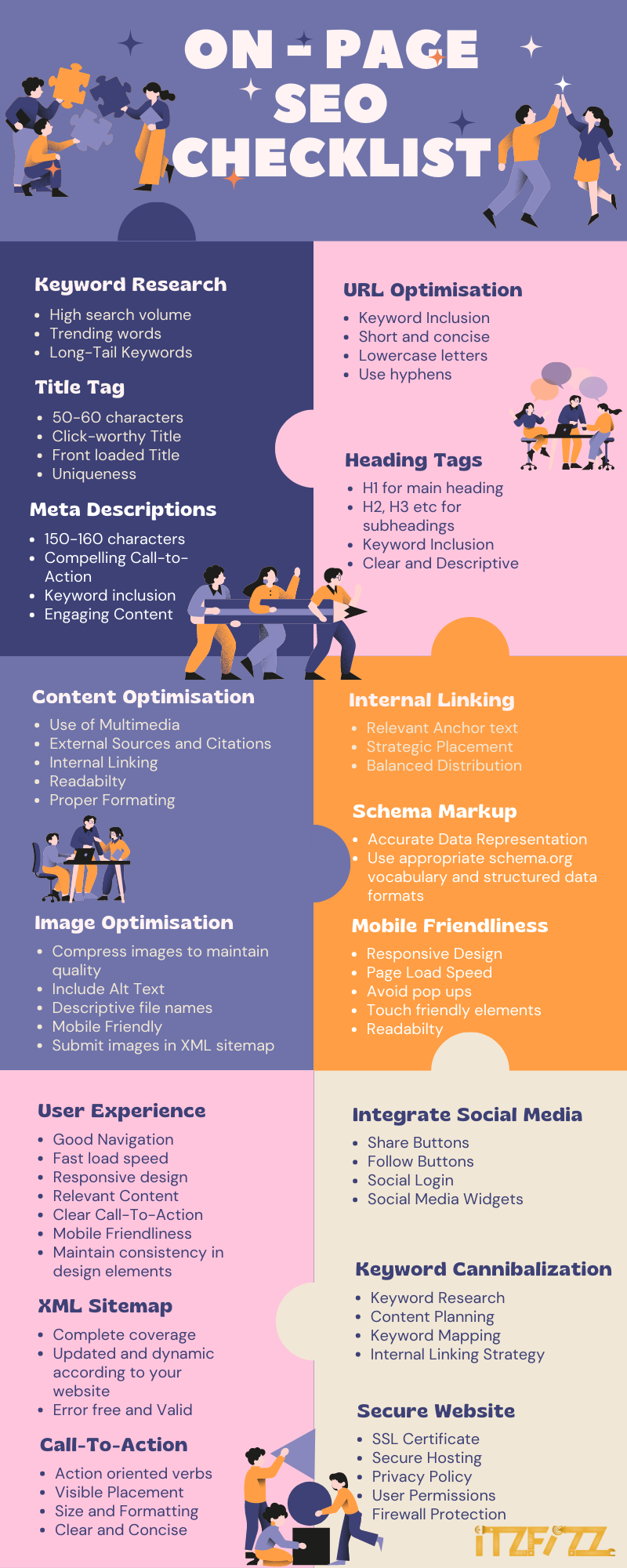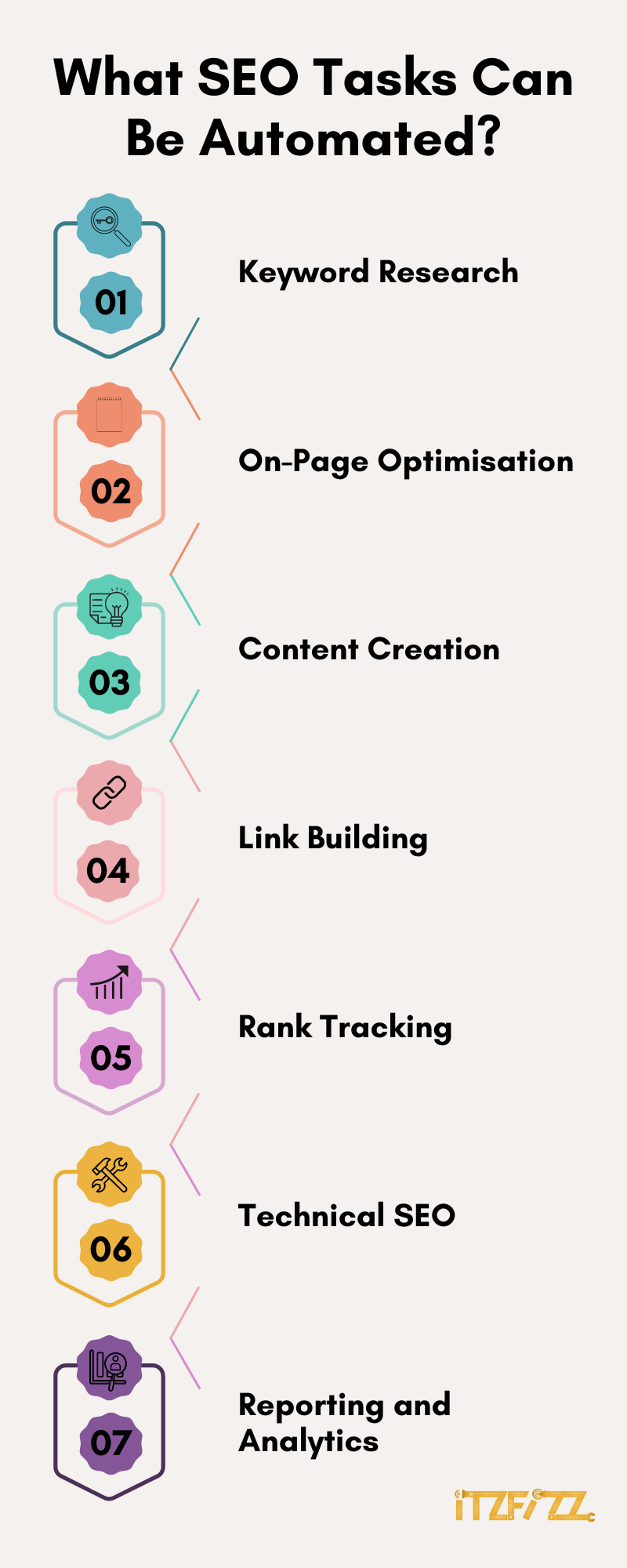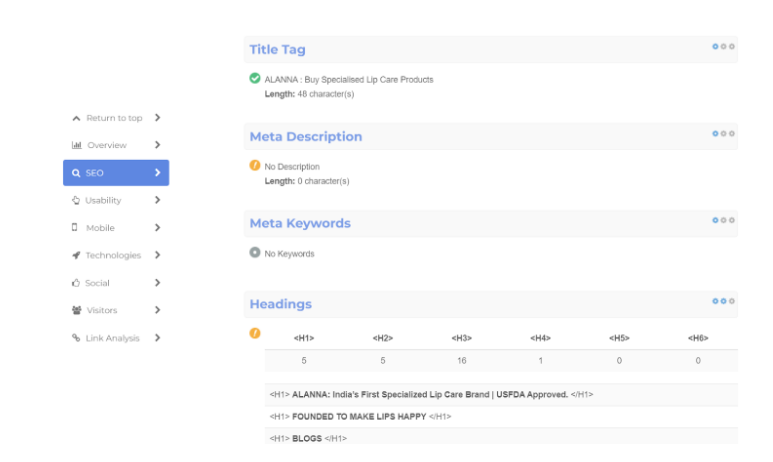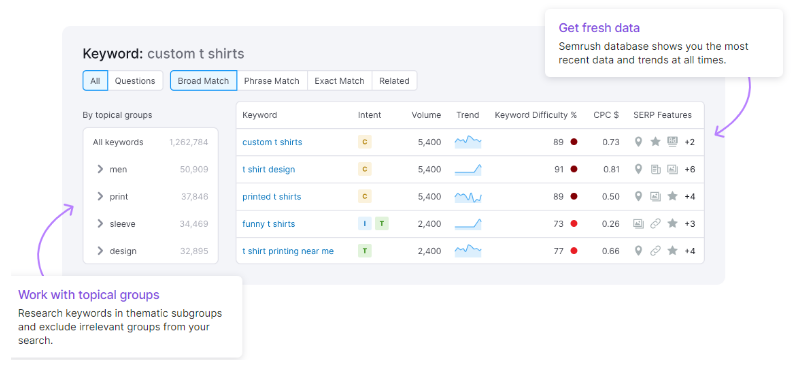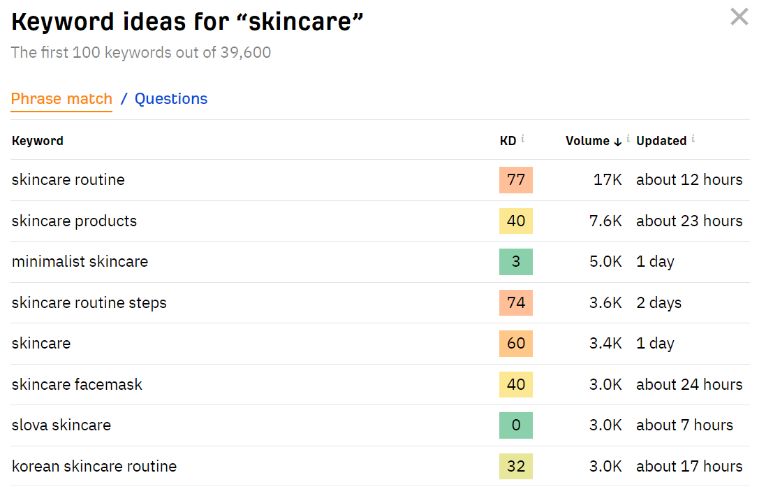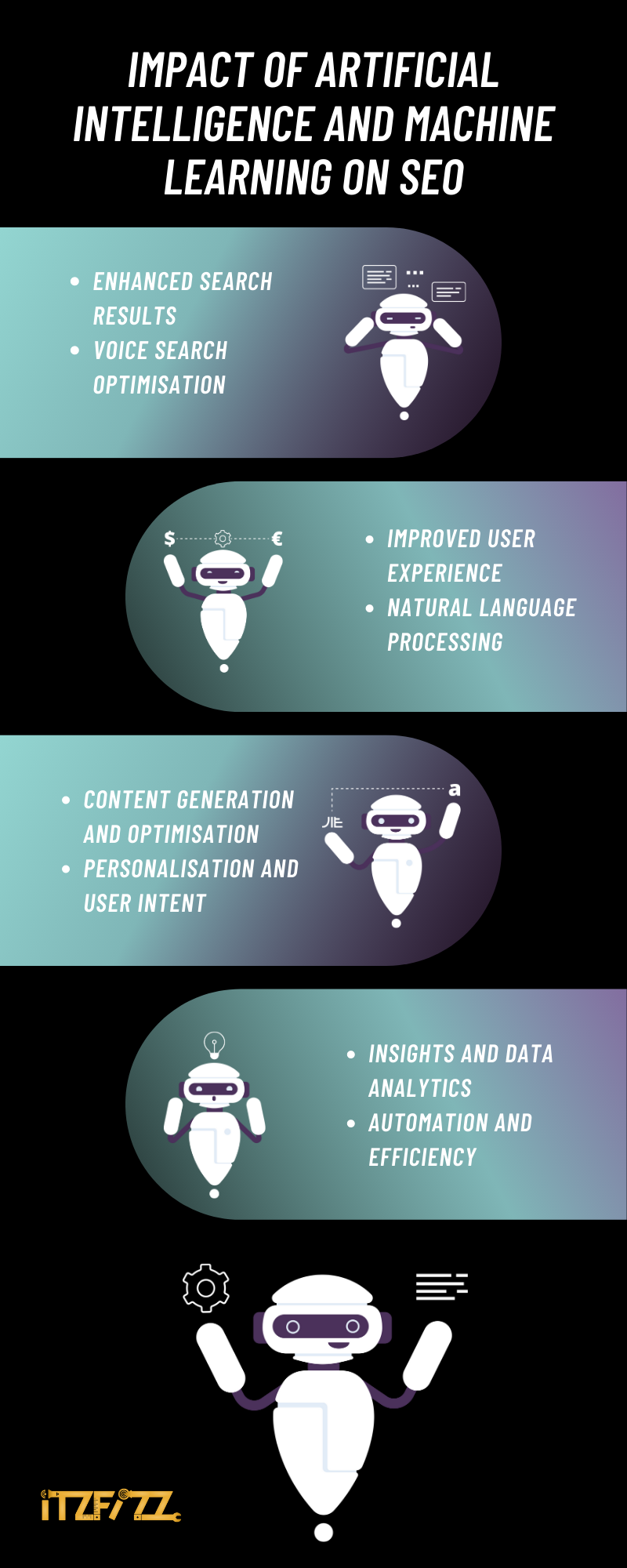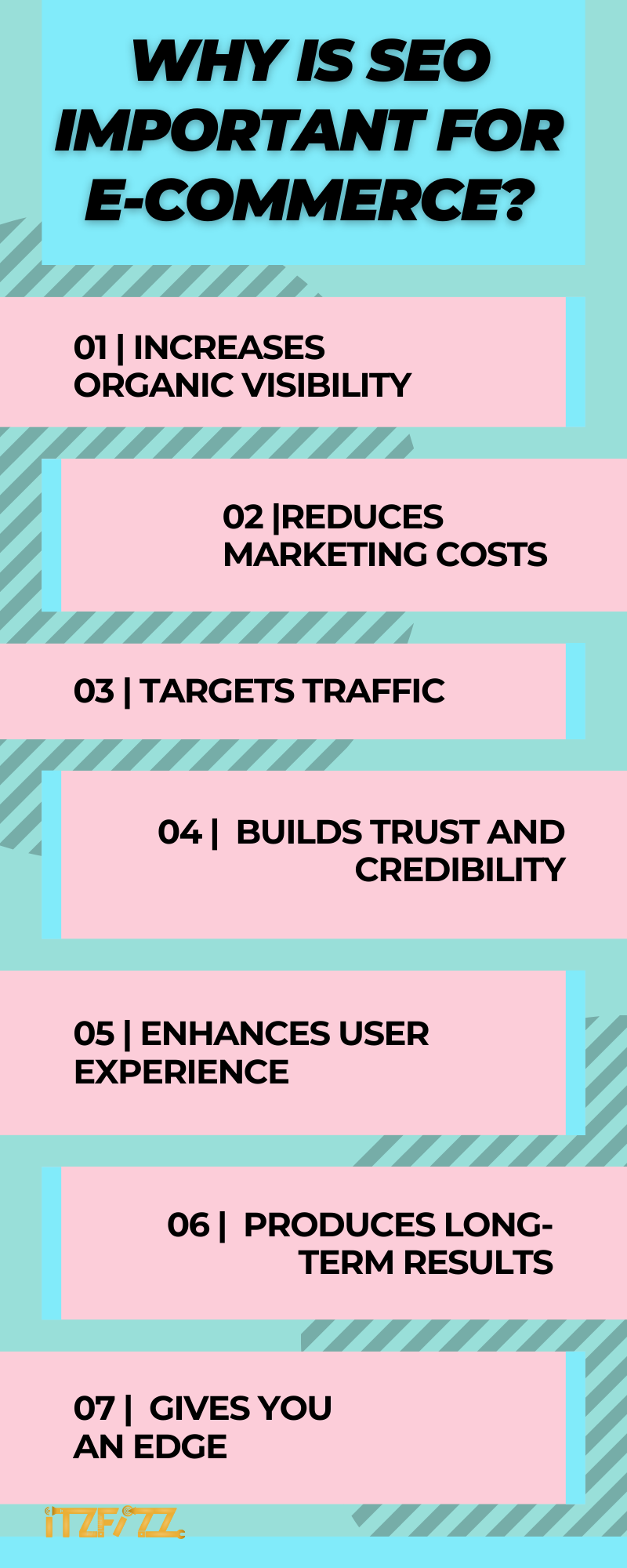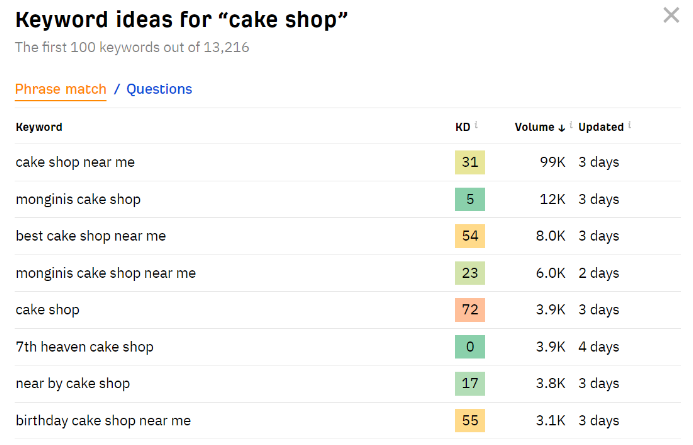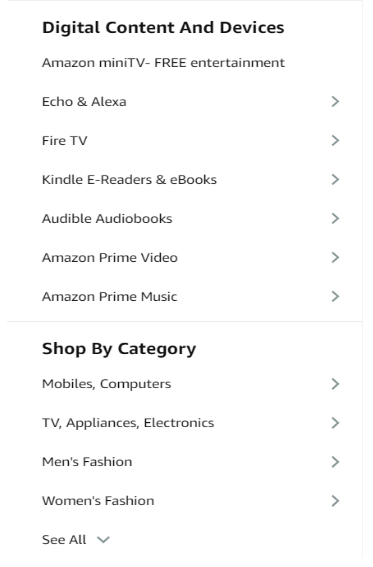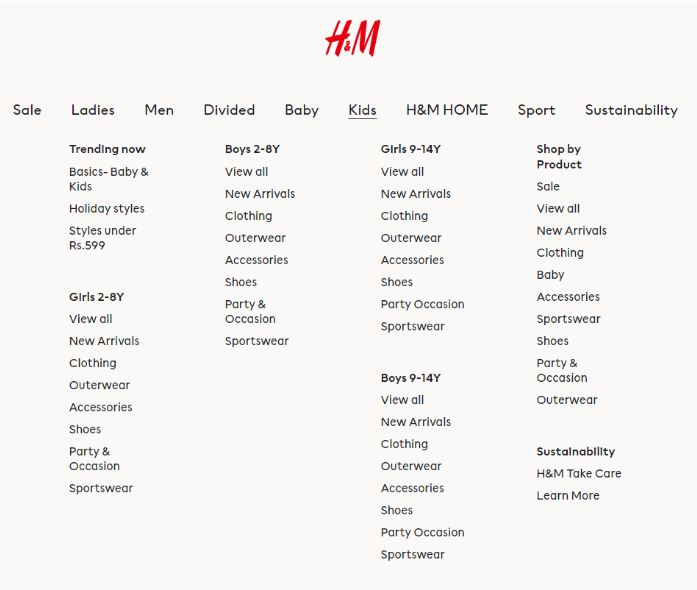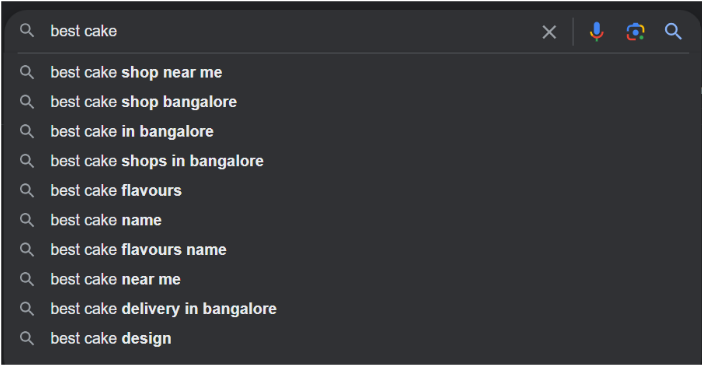Table of Contents
- Introduction to Technical SEO
- Benefits of technical SEO
- Internal Link Optimisation
- Technical SEO issues
- Strategies to improve technical SEO
- Addressing broken links
- Technical SEO Audit
- Understanding and Resolving Duplicate Content Issues
- Google Search Console Setup & Use
- Conclusion
- Frequently Asked Questions
Introduction to Technical SEO
Technical SEO is an integral part of website optimisation that focuses on improving the technical elements of a website to improve its ranking on search engine results pages (SERPs). This form of SEO includes various specifications in website and server configuration, including but not limited to page elements, HTTP header responses, XML sitemaps, redirects, and metadata.
The main purpose of technical SEO is to facilitate search engine indexing, which affects the website’s ranking either directly or indirectly. Unlike other SEO strategies, technical search engine optimization does not involve Google Analytics, keyword research, reverse profiling, or social media marketing. Instead, it improves the indexing and user-friendliness of websites, which improves the overall user experience.
In today’s digital environment, the importance of technical SEO cannot be overemphasised. Since search engines are constantly evolving, it is very important to ensure that your website meets the latest technical standards.
From improving site speed and mobile responsiveness to dealing with duplicate content and protecting your site with HTTPS, technical SEO encompasses many activities aimed at optimising your site not only for both end users and search engines.
By implementing effective technical SEO strategies, you can significantly improve your website and its performance in search engines like Google. This, in turn, can lead to increased website traffic, better user engagement, and potentially more revenue for your business.
Benefits of technical SEO
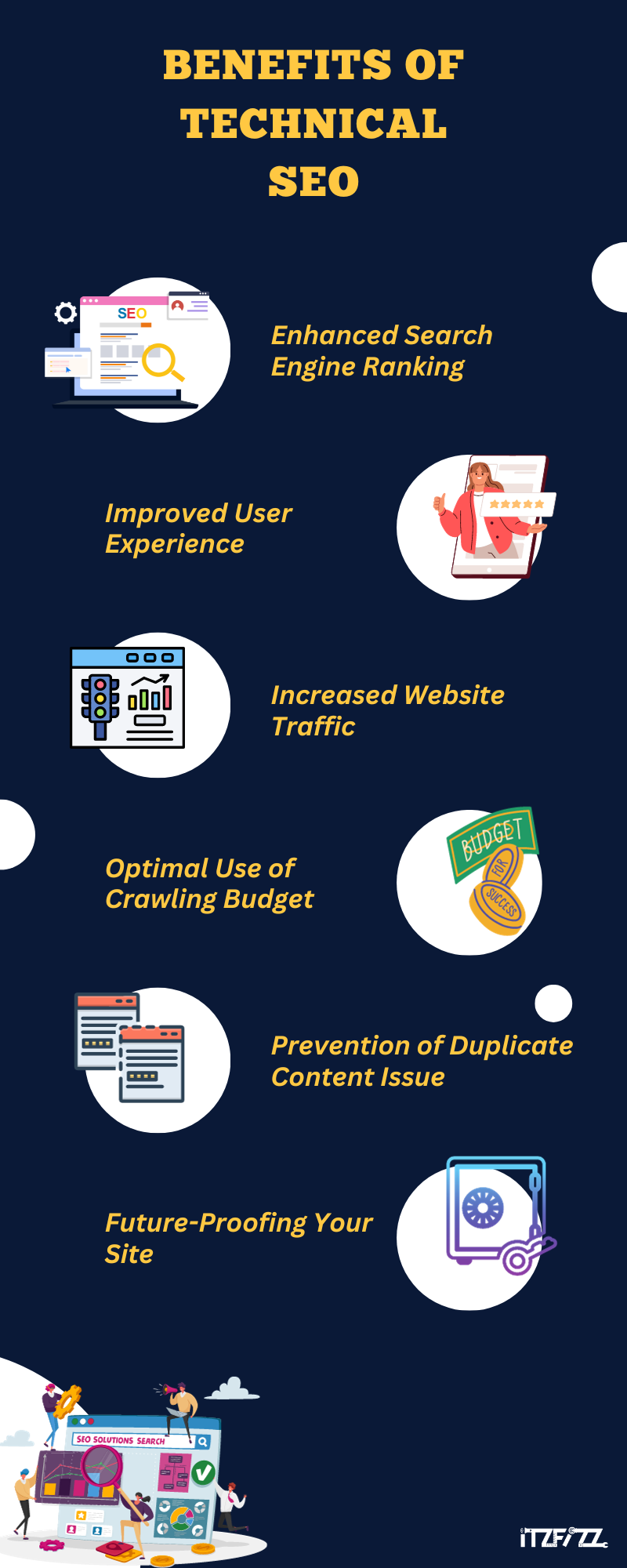
Understanding the benefits of technical SEO is crucial for any website owner or marketer. Here are the main benefits:
- Search Engine Ranking: By optimising technical aspects such as website speed, indexability, and structured data, technical SEO can significantly improve your website’s visibility in search results.
- Improved User Experience: Fast loading times, mobile friendliness, and a secure browsing environment contribute to an exceptional user experience, reducing bounce rates and encouraging longer site visits.
- Increased Website Traffic: Higher rankings in search results usually lead to increased organic traffic, which can be critical for business growth.
- Optimum use of index budget: Search engines allocate a certain ‘crawl budget’ to each website. Technical SEO ensures that search engines efficiently crawl and index the most important pages of your site.
- Avoid Duplicate Content: Technical SEO helps identify and resolve duplicate content, ensuring that every page on your website is unique and contributes to your overall SEO strategy.
- Future-proof your website: Adhering to the technical requirements of search engines ensures that your website is compatible with future algorithm updates and technological advances. By focusing on these aspects, technical SEO not only improves your website and performance in search engines but also improves the overall quality and credibility of your website.
Internal Link Optimisation
Optimising internal links is an important part of technical SEO. This involves strategically organising and linking your web pages to improve search engine rankings and the user experience. To optimise your internal links for SEO, do the following:
- Create a logical website structure. Make sure your website has a clear and intuitive hierarchy. This makes it easier for search engines to index your original content and for users to navigate your site.
- Use descriptive anchor text. Anchor texts should be relevant and descriptive and contain your target keywords. This helps search engines understand the context of linked, high-quality content.
- Linking to Important Pages: Prioritise linking to important pages such as product pages, blog posts, or landing pages to drive more traffic to those areas.
- Make sure the link is relevant; relevant links must be connected to the original text. This improves the user experience and can lead to better search engine optimization.
- Update Internal Links Regularly: As your website evolves, regularly review and update your internal links to ensure they are relevant and functional.
By implementing these internal linking best practices, you can significantly improve your website’s SEO, making it discoverable and accessible to both search engines and users.
Technical SEO issues
Technical SEO issues can significantly affect search results, especially in mobile search environments. A common technical problem is the lack of mobile-friendly websites, which is crucial because search engines prefer mobile websites.
Technical search engine optimisation includes mobile search optimisation, which ensures that your website is responsive and accessible across devices. In addition, things like incorrect permanent redirects can negatively affect click-through rates and reduce the effectiveness of organic searches.
Addressing these technical SEO challenges is essential for holistic SEO that improves both website and search engine performance.
Strategies to improve technical SEO
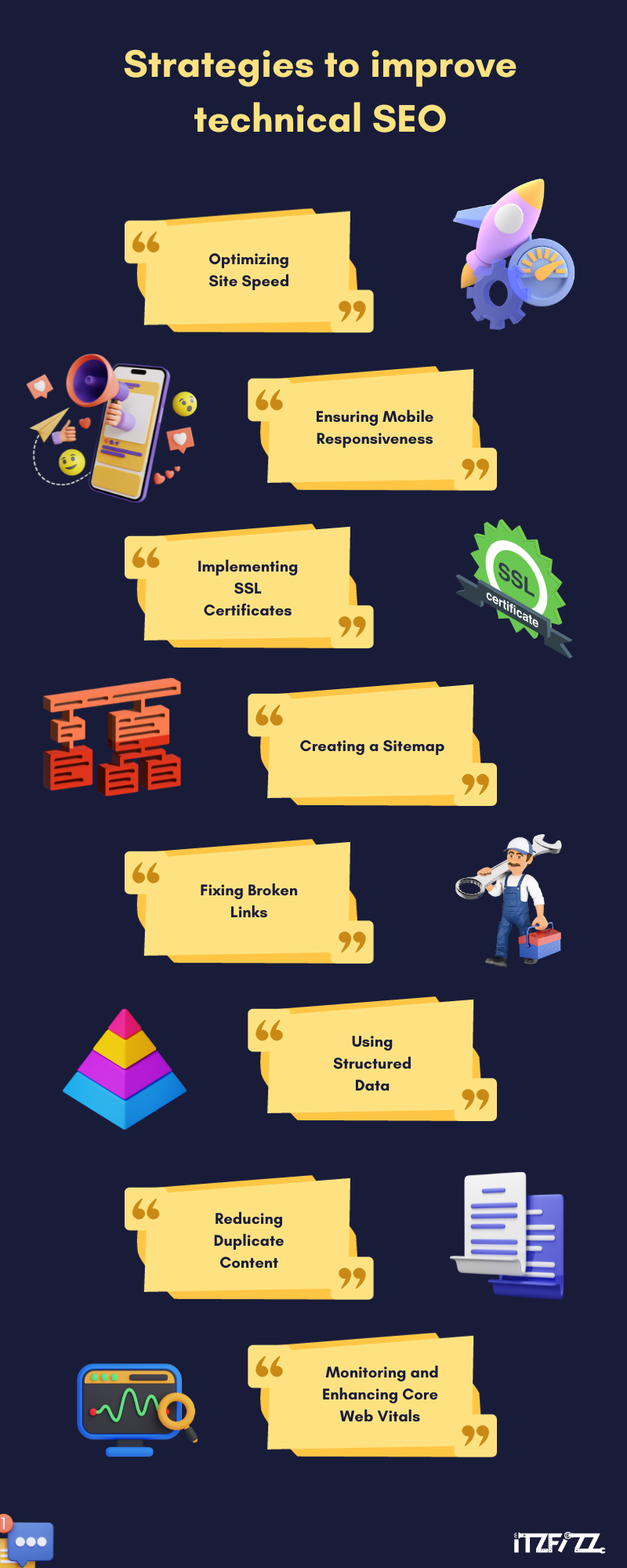
Technical search engine optimization includes a number of strategies designed to improve a website’s functionality and search engine compatibility. Key strategies include:
- Optimising Site Speed: Use tools like Google’s PageSpeed Insights to identify and fix the elements that slow down your site.
- Ensure Mobile Responsiveness: Make your website mobile-friendly to serve the growing number of mobile users and meet search engine standards.
- Deploy SSL Certificates: Protect your website with HTTPS to protect user data and increase credibility with search engines.
- Create a sitemap. Develop an XML sitemap to help search engines index your site more efficiently.
- Fix broken links: Regularly check and fix broken links to maintain a high-quality user experience and facilitate efficient website indexing.
- Use Structured Data: Use structured data to help search engines understand and display your original content as rich snippets.
- Reduce Duplicate Content: Process and remove duplicate content to ensure that every page on your website provides unique value.
- Monitor and Improve Core Web Vitals: Pay attention to Google’s Core Web Vitals as part of your website and user experience metrics by optimising factors like Largest Content Coloration (LCP), First Input Latency (FID), and Cumulative Layout. Change (CLS).
By implementing these strategies, you can significantly improve your website and technical SEO, improving both its search engine rankings and the overall user experience.
Addressing broken links
Broken links can have a significant impact on your website’s performance, user experience, and SEO. To identify and fix them, do the following:
- Identify broken links: Check your website for broken links using tools like Google Search Console or specialised SEO tools. These tools can detect 404 errors, which indicate that the page is no longer available.
- Fix broken links: Once detected, restore missing pages if accidentally deleted, or update links to point to relevant existing pages.
- Redirect Broken Links: After a page is permanently removed, redirect visitors and search engines to a similar page on your site using 301 redirects.
- Regular Audits: Conduct regular audits of your website to proactively identify and fix broken links.
This helps in maintaining a healthy and user-friendly website. By effectively managing broken links, you can improve your website’s SEO, improve the user experience, and ensure that your website remains an authoritative and trusted resource.
Technical SEO Audit
Conducting a technical SEO audit is crucial for identifying and addressing issues that could be hindering your website’s performance. Here’s a guide to performing an effective audit:
- Crawl Your Website: Use tools like Google Search Console, SEMrush, or Ahrefs to crawl your website. This helps in identifying issues such as broken external links, slow page load times, and duplicate content.
- Check Mobile Usability: Ensure your website is mobile-friendly, as this is a critical ranking factor. You can learn more about how well your website works on mobile devices by using tools like Google’s Mobile-Friendly Test.
- Assess Page Speed: Page speed is a significant ranking factor. Utilise tools like Google’s PageSpeed Insights to analyse your website’s loading times and get recommendations for improvement.
- Evaluate site structure and internal linking. Ensure that your site structure is SEO-friendly and that internal links are properly used and functional.
- Review security protocols: Check for HTTPS implementation to ensure data security, which is also a ranking signal for search engines.
- Identify and Resolve Duplicate Content: Use SEO tools to find and fix any duplicate content issues on your site.
- Analyse Structured Data and Sitemaps: Verify that structured data is correctly implemented and that your XML sitemap is up-to-date and submitted to search engines.
By systematically addressing each of these areas, you can significantly enhance your website’s technical SEO and improve its overall ranking and performance.
Understanding and Resolving Duplicate Content Issues
Duplicate content can negatively impact the SEO performance of your website. Here’s how to understand and resolve these issues:
- Identify Duplicate Content: Use SEO tools like SEMrush or Ahrefs to find duplicate content within your website. This includes identical or near-identical content across different pages.
- Implement Canonical Tags: Use canonical tags to indicate to search engines which version of a duplicated page is the primary or “canonical” one. This helps in avoiding penalties for duplicate content.
- Restructure Your Website: If necessary, reorganise your website’s structure to eliminate redundant pages and consolidate similar content.
- Regularly Monitor for Duplication: Continuously monitor your site for new instances of duplicate content, especially if you frequently add new pages or posts.
By effectively managing duplicate content, you can enhance the uniqueness and authority of your website, thereby improving its SEO performance.
Google Search Console Setup and Use
The Google Search Console (GSC) is a vital tool for managing your website’s presence in Google search results. Here’s how to set it up and use it effectively for technical SEO:
- Setting up Google Search Console: Sign up for GSC using your Google account. Add and verify your website by following the instructions provided by Google.
- Submitting Sitemaps: Submit your XML sitemap through GSC. This makes it easier for Google to find and index the pages on your website.
- Monitoring Website Performance: Regularly check GSC for insights on how your site performs in search results, including impressions, clicks, and rankings for different keywords.
- Identifying and Fixing Crawl Errors: Use GSC to identify crawl errors like 404s and correct them to improve your website’s SEO.
- Analysing Search Queries: Analyse the queries driving traffic to your site and adjust your amazing content strategy accordingly to capture more relevant traffic.
By leveraging GSC, you can gain valuable insights into your website’s search performance and identify areas for improvement in your technical SEO strategy.
Conclusion
Finally, mastering Technical SEO is the key to activating the potential of your website in the ever-changing digital landscape. From optimising site speed to ensuring mobile friendliness, each technical aspect contributes to the health and visibility of your site in search engines.
As we conclude, keep in mind that Technical SEO is an ongoing process. Stay current, stay adaptable, and let your technical skills drive your digital success.
Use our experience to improve your performance online! Itzfizz Digital, named a top SEO agency by Rankwatch in 2023, is your secret to maximising visibility and remaining competitive in the digital sphere.
You can rely on us for mobile-friendly designs, smooth permanent redirect solutions, and guaranteed increases in click-through rates.


